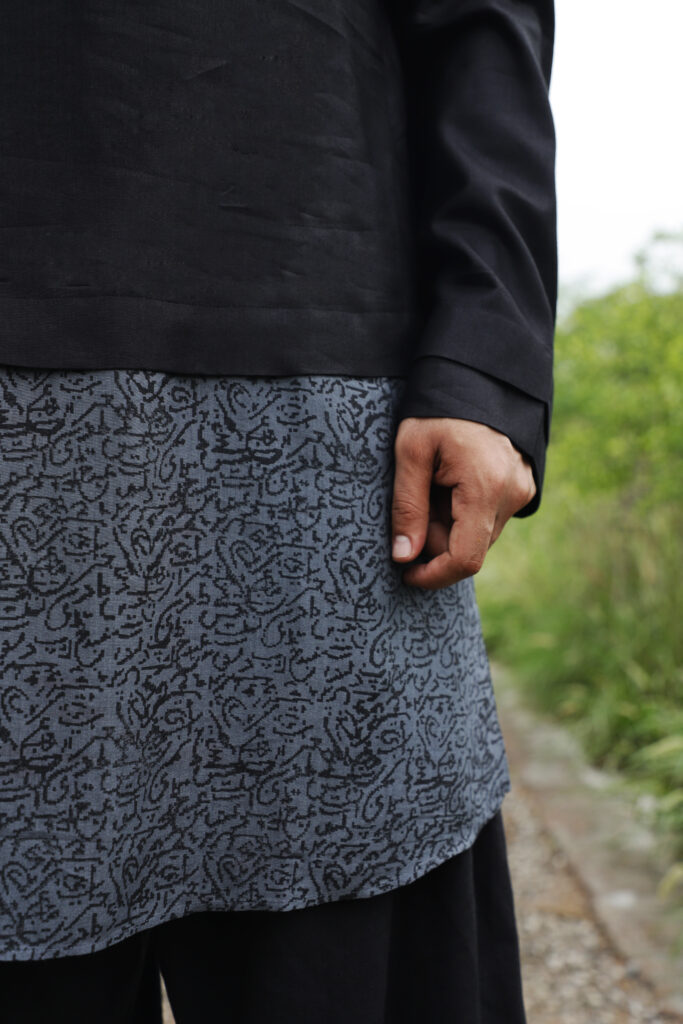When Wajahat Rather, a youth from Zangalpora village of south Kashmir’s Kulgam district passed his class 12 board examination in late nineties, his family, as would anybody else’s, wanted him to become a doctor and cure the people of the valley.
Rather instead went by his instinct and enrolled himself at a designing school where he would rather specialize in “healing” the fabric- both the material and social.
The 39-year-old Delhi-based designer has already carved a niche in the fashion industry with his designer label ‘Raffughar’, a name dedicated to the traditional Kashmiri artisans.
In an exclusive chat with Greater Kashmir, Rather said that his family was eager to make him a doctor “but I wanted to listen to my heart”. “I wanted to do something else other than become a doctor or an engineer, and end this obsession with the professions in the society,” he said.
To pursue his dream, Rather took an admission at an Arts School in Jammu where he started to study painting.
At the Arts School, Rather met Rajinder Kumar Tikoo, a sculptor, who spotted Rather’s knack for designing and advised him to pursue a career as a designer.
Following Tikoo’s advice, Rather did his post-graduation in Designing at the National Institute of Design and later started teaching at the Northern India Institute of Fashion Technology (NIIFT) to earn some quick bucks and also pursue his dream in the designing industry.
The first breakthrough in the aspiring designer’s career came in an exhibition at the French Embassy in New Delhi, which provided him an opportunity to showcase his designing prowess.
“Initially, I started by designing Kashmiri professionals like fisherman, shepherd, and farmers on stoles, scarves and Namdas [rugs], but the exhibition came as a big boost and encouraged me to exhibit my products at more such events,” Rather recalled.
“When I received more appreciation for my designing, I thought why not put these designs on garments, so that people wear the identity of Kashmir. So I started to portray these designs on thread,” he said over his decision to come up with his own label ‘Raffughar’.
The brand name is a tribute to the traditional Kashmiri darning artisans, he says. “There was a time when raffughars of Kashmir were known for their art to heal the fabric. The word ‘heal’ struck me and I reflected upon it for days, studied it and learnt the background. I decided to carry this Kashmir originated name to much bigger heights and change the stereotypical mindset of Kashmiris,” explained Rather.

He said that people back home in the valley have been looking down upon the profession “as if there is no life beyond the profession of doctor and engineer for a student”.
“Rather than merely designing fabrics, I want to heal them and also the desolated hearts of Kashmiri artists, because there are many artists in Kashmir, but only a few appreciate the art. I hope people will start appreciating the art through my work and create a more open space for youngsters when they choose their professions,” Rather said.
Rather, who presently teaches designing at the Delhi based ‘Pearl Academy’ as an associate professor seems to be a contented man as he reflects on his journey from painting guest houses and landscapes on his school art-book to weaving magic on garments.

“People would taunt me and ask why I wanted to become a “tailor”, but now more and more youngsters are reaching out to me for tips and guidance in the designing field,” he says.
Over his plans to expand his business in the valley back home, Rather said that people in Kashmir cannot work in the prevailing circumstances.
“Until there is political stability in Kashmir, it is difficult to establish a proper business in Kashmir, but I am planning to open clusters where students and artists can be guided and a platform will be provided to them to showcase their art and skill,” Rather said.






